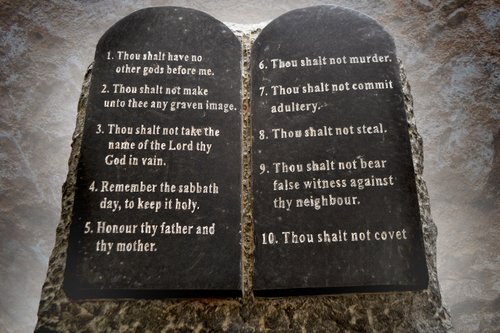 What is the purpose of rules? Is it for control? Or maybe for a set order of things or behaviors? Why does every society formed have rules for conduct, behavior, and actions?
What is the purpose of rules? Is it for control? Or maybe for a set order of things or behaviors? Why does every society formed have rules for conduct, behavior, and actions?
Well, I know that sounds a little silly to ask. But is it really? If there are rules then there has to be a reason they are there. And that, my dearest, is an issue that never goes out of style. We kick against rules. We try to bend rules; get around rules; and even ignore rules. But there they are all the same.
Look at our lesson today in Matthew 12:9-13:
At that time, Jesus entered the synagogue of the Jews. And behold, there was a man with a withered hand. And they asked him, “Is it lawful to heal on the sabbath?” so that they might accuse him. He said to them, “What man of you, if he has one sheep and it falls into a pit on the sabbath, will not lay hold of it and lift it out? Of how much more value is a man than a sheep! So it is lawful to do good on the sabbath.” Then he said to the man, “Stretch out your hand.” And the man stretched it out, and it was restored, whole like the other.
The scene is well known. Jesus made it a habit to go to synagogue every Saturday as was Jewish law, and He knew the ceremonial laws about rest the Jews had practiced for centuries. He also knew the hearts of the religious leaders and their attitudes that had developed about these religious rules. Something had to change because following the rules had become more important than loving God and loving your neighbor. The reason fo0r the rules had been forgotten so the very act of keeping the rules had lost its intended purpose to show just how much we needed mercy, forgiveness, and God’s grace.
Jesus was a noted “rabbi” or “teacher, so He was use to being asked to speak at synagogue and here He is asked a question that would reveal WHY the rules were there in the first place. Jesus asks this crowd, and He asks us “Is it lawful to do good on the sabbath?” This was His response to their question “Is it lawful to heal on the sabbath?” Of course they only asked the question to trap Him. But the Lord turned the tables on them and revealed them to be the true lawbreakers.
Jesus tied doing “good” on the sabbath to the value of the person who was suffering. And He revealed that these very same sanctimonious “rule-keepers” would justify “working” on the sabbath if one of their livestock fell in a pit. Jesus reveals these leaders’ true darkness in displaying for everyone to see that these men loved their livestock more than the poor man suffering with a withered hand.This blindspot in the hearts of these leaders uncovered the ugly truth that their “rule-keeping” was nothing more than an excuse to exercise “power” and “authority” over others, not to see the value in measured rest at least one day a week for a healthy body and soul. They had so abused the rules of the sabbath for their own sakes as to make the Lord’s compassionate actions that day “bad” instead of doing “good” on the sabbath.
But that’s what always happens when you try to reduce wisdom to rule-keeping. You dehumanize the wisdom of the Faith for your own pride so that you can be “technically” righteous without all that hard stuff of actually loving your neighbor or loving your enemy. You cite all the “religious reasons” why “those people” are wrong or bad or “unacceptable” and then make a religious justification for acting in an unloving manner, even resorting to force to insure “compliance” with the rules. And I have to ask, does that ever lead to deeper relationships? Does it ever really work to insure obedience in the long run. It usually doesn’t. In fact, the results of that too small a WHY for obedience usually creates a backlash that has those who wouldn’t obey fighting to get power to exact revenge on those who had the power.
Today, are you willing to do the hard work of embracing wisdom or do you catch yourself cutting short this hard work in settling for some mere rule-keeping? The Faith invites us to a much more difficult but ultimately more healthy and mature path; the path of loving God so much and loving our neighbors so much that we joyously embrace the wisdom of rules for their sake. This is the true aim for being Orthodox on Purpose!
